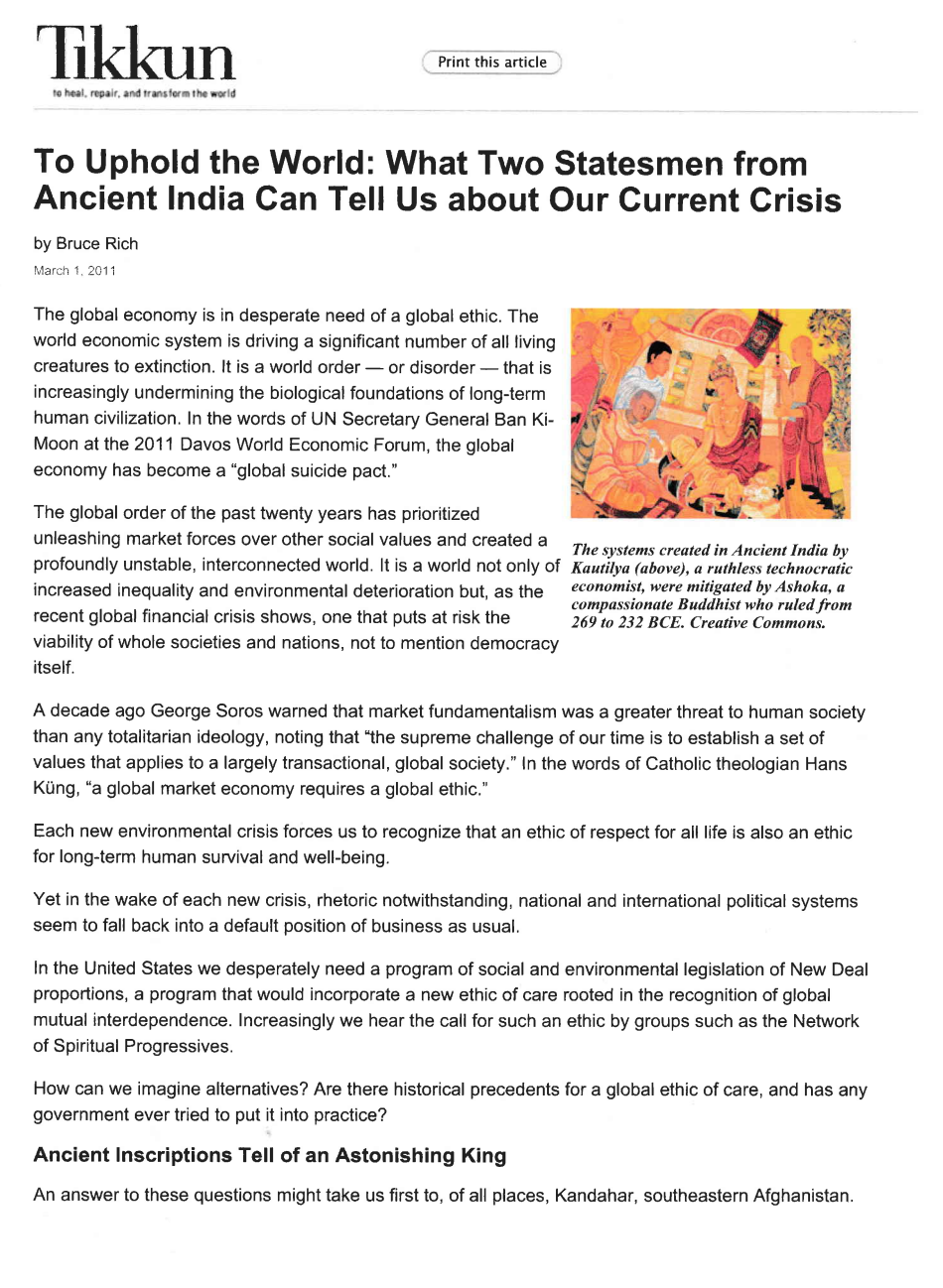- Bruce Rich
- Tikkun [a leading American political, cultural and religious magazine]
- March 1, 2011
- pp. 25-46
The global order of the past twenty years has prioritized unleashing market forces over other social values and created a profoundly unstable, interconnected world. It is a world not only of increased inequality and environmental deterioration but, as the recent global financial crisis shows, one that puts at risk the viability of whole societies and nations, not to mention democracy itself. George Soros warned that market fundamentalism was a greater threat to human society than any totalitarian ideology, and in the words of Catholic theologian Hans Küng, “a global market economy requires a global ethic.” In the third century BCE the Indian Emperor Ashoka promulgated a new ethic, which he called Dhamma, “the law of piety.” On sixty-foot pillars, which can still be seen today in different parts of the subcontinent, he declares the uniform and equal application of laws, the establishment of protected natural areas, and even a protected species act, listing all the animals the king has declared as exempt from slaughter. Ashoka proclaims that all religious and philosophical sects have an “essential doctrine,” the progress of which he will nurture “through gifts and recognition.” Beneath the outward form, all religions and beliefs have an essential core that aims for the good and that is worthy of general support. Ashoka thus poses the challenge of whether there has been any lasting ethical progress in the behavior of states and societies over the past millennia. Ashoka's great ethical leap rested on the most paradoxical of foundations, the work of Kautilya who wrote that "of the ends of human life, material gain is, verily, the most important." Kautilya was the chief minister of Ashoka's grandfather Chandragupta Maurya, who founded the dynasty under which Ashoka would, after the final bloody conquest of Kalinga, unite lndia for the first time. One of history's greatest political thinkers, Kautilya wrote the first treatise on political economy, the Arthasastra. Artha in Sanskrit means wealth or material well-being while sastra can betranslated as science, so the Arthasastra describes the science of wealth or, quite literally, economics.



